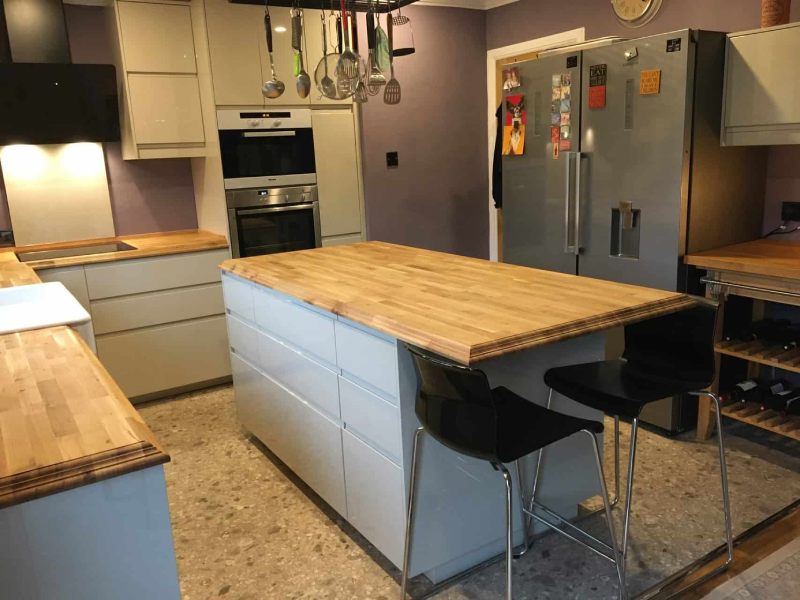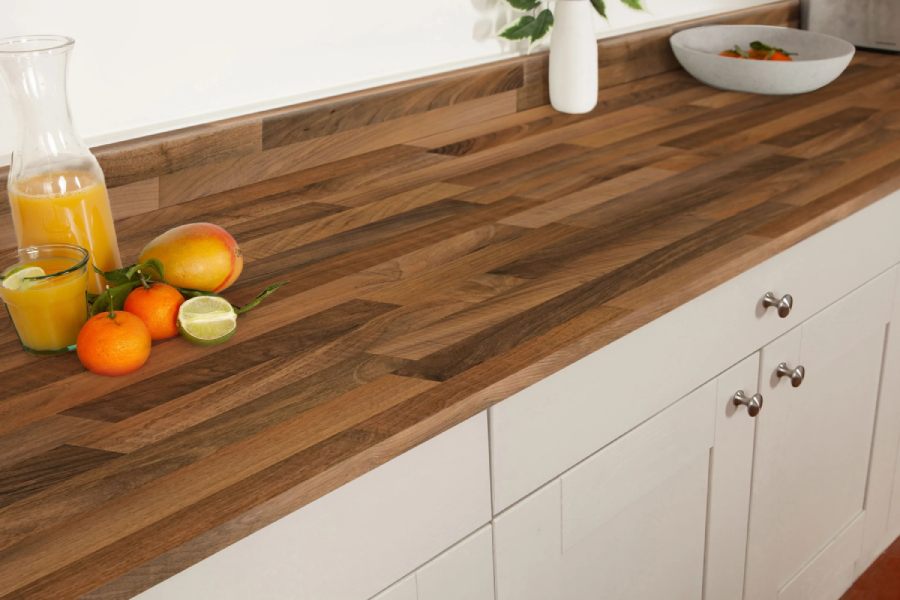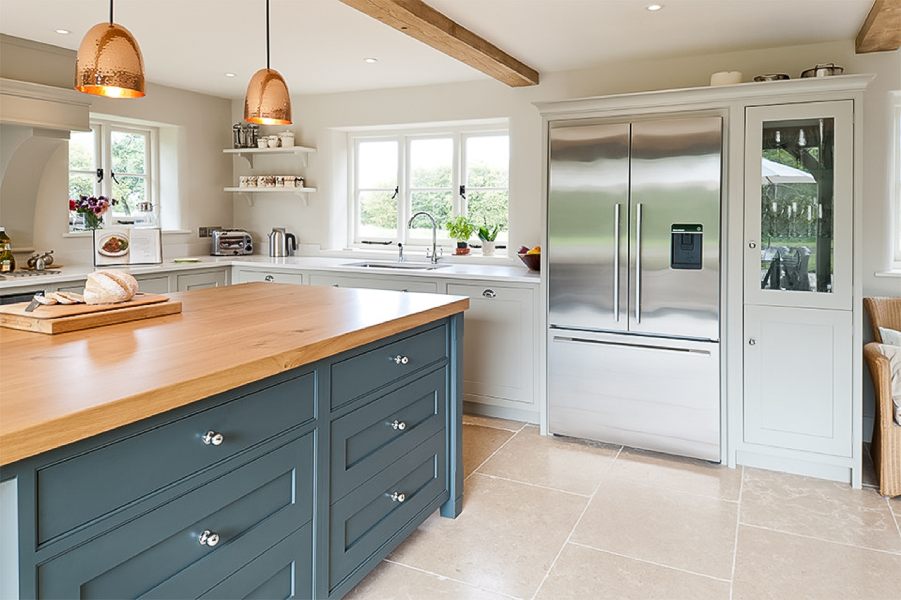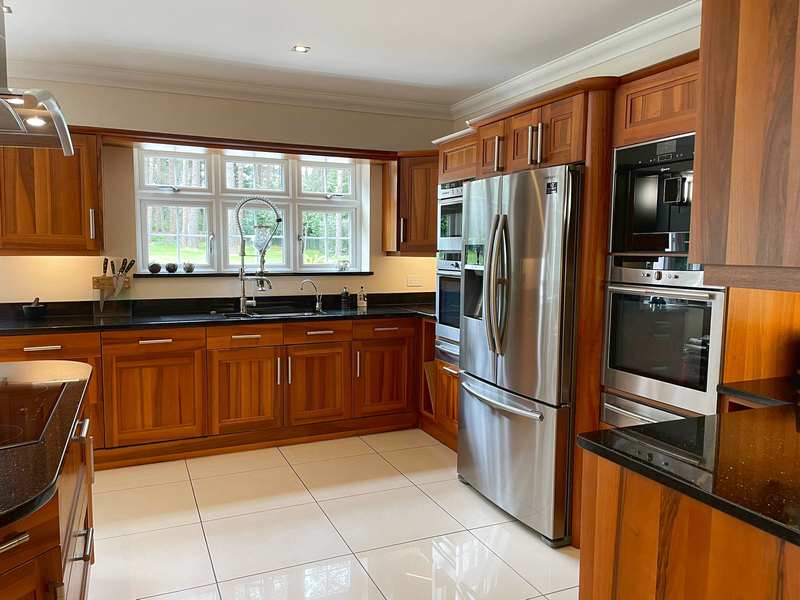Transforming your kitchen into a warm and inviting space often starts with choosing the right materials. Wood stands out for its timeless appeal and natural beauty among the myriad options available for countertops. The best wood worktops for kitchens offer durability and practicality and bring natural beauty to your space.
In this article, we will explore wooden kitchen worktops to help you find the ideal match for your space. We’ll also examine the pros and cons of various wood types to inform your decision on whether to renovate or build anew.
Dive into the world of wood worktops and discover how they can transform your kitchen into a blend of elegance and efficiency!
Best Wood Worktops for Kitchens
Choosing the best wood worktops for your kitchen depends on your aesthetic preferences, durability needs, and maintenance requirements. Some top choices are oak, walnut, maple, cherry, beech, bamboo, teak, and ash.
Revitalize your kitchen with the expertise of Kitchen Remodeling Seattle. Our skilled designers and craftsmen are committed to creating a space that combines beauty and functionality, tailored to your style. Now, here is further elaboration on top wood options that enhance kitchen aesthetics and functionality:
1. Oak
Oak worktops are celebrated for their durability and timeless beauty. Their distinctive grain pattern and warm coloration bring a classic charm to any kitchen while enduring daily wear and tear.
Despite their robustness, oak worktops necessitate regular maintenance to guard against water damage and staining. They are also susceptible to scratches and dents, which may require periodic sanding and refinishing to preserve their pristine appearance.

2. Walnut
Walnut worktops offer a luxurious, rich brown color that darkens beautifully with age. Its natural luster and smooth texture make it a popular choice for high-end kitchens, providing both elegance and functionality.
On the downside, walnut is softer than some other hardwoods, making it more susceptible to scratches and dents. It’s also one of the more expensive wood options, which may not suit all budgets.

3. Maple
Maple worktops are prized for their light color and fine, uniform grain. This extremely hard and durable wood makes it resistant to wear and tear from daily kitchen activities.
While maple is generally easy to clean, it can be prone to staining if not sealed properly. Its light color may also show marks and blemishes more readily than darker woods, requiring frequent maintenance.

3. Cherry
Cherry wood worktops bring a warm, reddish-brown hue to your kitchen, which deepens and matures with age, adding unique character. The smooth grain and natural sheen of cherry wood contribute to a sophisticated look, seamlessly complementing a range of kitchen styles.
However, its softness compared to other hardwoods means it can be more easily scratched and dented. Additionally, cherry wood is sensitive to light; prolonged exposure to sunlight can cause uneven coloration over time, affecting its overall appearance.

4. Beech
Beech worktops are known for their strength and light, uniform appearance. This wood offers excellent value, combining durability with an attractive grain pattern that suits many kitchen designs.
While beech is generally stable, it can be prone to movement in humid conditions. It also requires regular oiling to maintain its appearance and prevent water damage, which may be a consideration for busy households.
Source: cloudinary.com
5. Bamboo
Bamboo worktops offer an eco-friendly alternative to traditional hardwoods. They’re extremely hard-wearing, resistant to water damage, and feature a unique, modern appearance that appeals to many homeowners.
Despite its benefits, bamboo can be prone to scratches and may show wear more quickly than some hardwoods. Moreover, it is sensitive to extreme temperature changes, which could lead to warping or cracking over time.
Source: dropinblog.net
6. Teak
Teak worktops are highly prized for their exceptional water resistance and durability. Their rich, golden-brown hue and fine grain bring elegance and practicality to any kitchen. Teak’s natural density and high oil content make it resistant to stains, spills, and bacterial growth, making it an ideal choice for busy kitchens that endure frequent use.
However, there are some drawbacks to consider. The high cost and decreasing sustainability of teak are significant concerns. Plus, the teak requires regular oiling to preserve its appearance and prevent drying or cracking.
Source: advice.diy-kitchens.com
7. Ash
Ash worktops bring a light, modern touch to any kitchen with their distinctive grain pattern. Their strength and flexibility make them a durable choice, ideal for maintaining a contemporary look.
Yet, without proper sealing, ash is susceptible to moisture absorption, which can cause warping and staining. Also, exposure to sunlight may lead to the wood darkening over time, potentially altering the intended design of your kitchen.
Source: bp.blogspot.com
Conclusion
Choosing the best wood worktops for kitchens requires a thoughtful balance of aesthetics, durability, and maintenance. Each type of wood brings unique characteristics: Oak and walnut are known for their classic elegance and durability, while maple and cherry provide refined looks with their own maintenance needs. Beech and bamboo offer practicality and eco-friendliness, and teak is praised for its water resistance and rich appearance.
Moreover, ash combines a modern touch with strength but requires careful sealing to prevent issues. By evaluating these options and considering your specific needs, you can select a wood worktop that enhances your kitchen’s functionality and complements its style.
Now, you can transform your kitchen with our exquisite range of premium countertops. Choose from granite countertops for timeless durability and elegance, quartz countertops for a sleek, low-maintenance solution, or marble countertops for a touch of luxury and sophistication.
Elevate your space with the perfect surface for your home!


